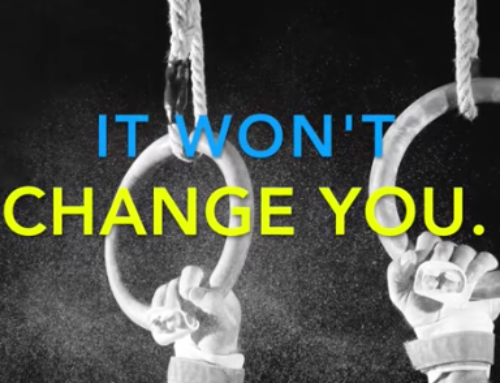One of the hardest things in being a young athlete today is dealing with the harsh criticisms of others. These days are especially challenging with the existence of social media which allows ones words to spread far in a matter of minutes.
Athlete or not, we all have someone in our lives who for some reason or another wants to bring us down or who have an extremely negative impact on us. Often times we fuel this negativity by how we react to it and by talking about it over and over again. This ultimately can start to effect your training, you academics and your overall well being.
The good news is, there are ways to handle this problem. Some of the most powerful words I have ever read came from a man by the name of Joseph Brodsky. Brodsky was Famous Poet and won the Nobel Prize for Literature in 1987
In 1988, Brodsky delivered the commencement speech to students at the University of Michigan. The full speech is shared in Brodsky’s book, On Grief and Reason: Essays. This particular excerpt from the speech really hit me and perfectly explains how to deal with the critics and bad influences in your life.
“Try not to pay attention to those who will try to make life miserable for you. There will be a lot of those — in the official capacity as well as the self-appointed. Suffer them if you can’t escape them, but once you have steered clear of them, give them the shortest shrift possible. Above all, try to avoid telling stories about the unjust treatment you received at their hands; avoid it no matter how receptive your audience may be. Tales of this sort extend the existence of your antagonists; most likely they are counting on your being talkative and relating your experience to others. By himself, no individual is worth an exercise in injustice (or for that matter, in justice). The ratio of one-to-one doesn’t justify the effort: it’s the echo that counts. That’s the main principle of any oppressor, whether state-sponsored or autodidact. Therefore, steal, or still, the echo, so that you don’t allow an event, however unpleasant or momentous, to claim any more time than it took for it to occur.
What your foes do derives its significance or consequence from the way you react. Therefore, rush through or past them as though they were yellow and not red lights. Don’t linger on them mentally or verbally; don’t pride yourself on forgiving or forgetting them — worse come to worse, do the forgetting first. This way you’ll spare your brain cells a lot of useless agitation; this way, perhaps, you may even save those pigheads from themselves, since the prospect of being forgotten is shorter than that of being forgiven. So flip the channel: you can’t put this network out of circulation, but at least you can reduce its ratings. Now, this solution is not likely to please angels, but, then again, it’s bound to hurt demons, and for the moment that’s all that really matters.”
–Joseph Brodsky, On Grief and Reason: Essays
Immediately, I put this advice to use in my own life and it has been unbelievably effective. Make no time for those whose words are poisonous and detrimental to your well being. Forget the harsh words and move on without giving it another thought. When you do, you will see how quickly you will squash the existence of this stream of negativity in your life.
Brad Thornton
Strength & Fitness Team Lead
www.GymnasticsStrength.com
Sources: James Clear of JamesClear.com
Joseph Brodsky, On Grief and Reason: Essays






Leave A Comment